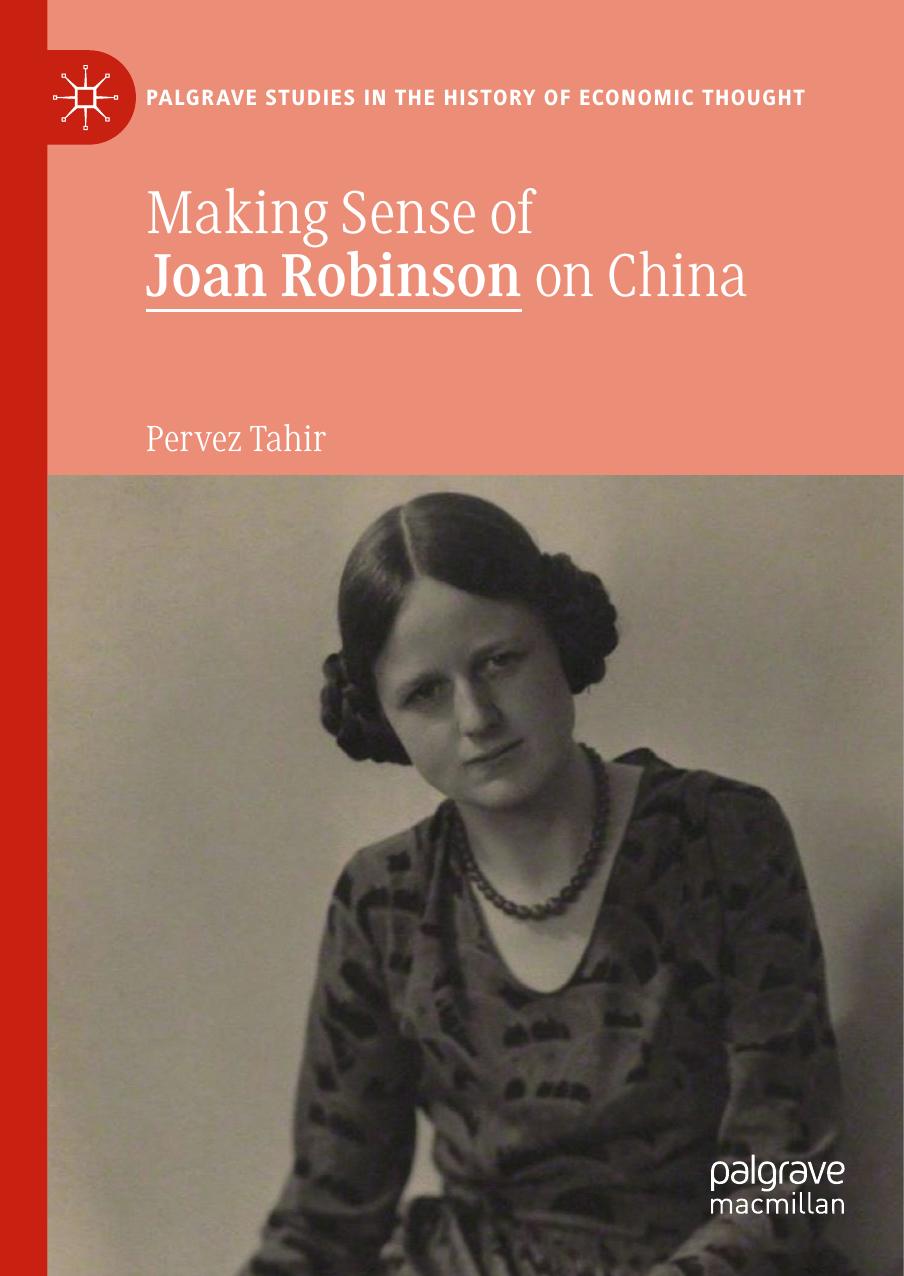Making Sense of Joan Robinson on China by Pervez Tahir

Author:Pervez Tahir
Language: eng
Format: epub, pdf
ISBN: 9783030288259
Publisher: Springer International Publishing
Joan Robinson made no mention of the Ten Great Relationships speech until a lecture delivered on 19 November 1969 (K.A., 1969, 5),58 despite four visits since 1956. She did not probably know of it until she read Ch’en (1969). In her writings, she continued to think of the rightists as pro-Soviet and interpret their caution as a shortcut: “No doubt in China there are many elements in the administration and the armed forces who are attracted by the Soviet power and by modem technology; they are tempted by a short cut to industrialisation rather than going the long way by Mao’s ‘proletarian road’” (Robinson, 1976d, 17). She seems to have based this interpretation on Mao’s post-Leap admission that “the Leap from the kingdom of necessity to the kingdom of freedom is gradually achieved in a long-term process of recognition”. Her Freedom and Necessity (Robinson, 1970g) derived its title from this quote of Mao. It must, however, be noted here that in practice the Stalinist elements were not as visible in the rightist economic strategy as they were in the Mao line. There are, in fact, suggestions that Mao never wrote the Ten Great Relationships, which marked the break with the Soviet development strategy (Macfarquhar , 1983, 332).
During the cultural revolution, industrial breakdown did not occur because of the restructuring of the investment programme carried out by the rightists and agriculture did not produce famine conditions because of the weak incidence of the cultural revolution measures. The problem, however, was that the “communes provide complete economic security to their members, each at the level that it has been able to attain” [emphasis added] (Robinson, 1969b, last page). Thus the inter-commune inequality was admitted to have continued,59 in addition to the fact that an economic base had been laid during the rightist-managed recovery after the Leap to serve as the ground for the experiment of the cultural revolution: once a society has come into being “which is providing a standard of life which may not be very comfortable but is at a level at which everybody can live; then it becomes possible to appeal to them to avoid egoism, to serve the people” (Robinson, 1970c, 46–7).
A word that does not occur anywhere in The Cultural Revolution is family planning. This is not surprising, as the campaign as well as the campaigners—adjudged rightist and the taking of the capitalist road—were not heard of at all during the cataclysmic years of 1966–71. This was also the period which experienced highest ever net annual increases of population (Hou Wenruo, 1981, 63). Yet Joan Robinson claimed that the security provided by the communes had weakened the old-age security hypothesis. Compared with India,60 the propaganda for late marriage and small families was more successful because the party members “know how the people think and feel”, while the campaigners in India “do not seem to be much less foreign than I would be if I went into an Indian village” (Robinson, 1969d, 818). Soon she discovered that the old-age security did not matter, at least in the countryside.
Download
Making Sense of Joan Robinson on China by Pervez Tahir.pdf
This site does not store any files on its server. We only index and link to content provided by other sites. Please contact the content providers to delete copyright contents if any and email us, we'll remove relevant links or contents immediately.
International Integration of the Brazilian Economy by Elias C. Grivoyannis(108887)
The Radium Girls by Kate Moore(12013)
Turbulence by E. J. Noyes(8040)
Nudge - Improving Decisions about Health, Wealth, and Happiness by Thaler Sunstein(7689)
The Black Swan by Nassim Nicholas Taleb(7104)
Rich Dad Poor Dad by Robert T. Kiyosaki(6600)
Pioneering Portfolio Management by David F. Swensen(6283)
Man-made Catastrophes and Risk Information Concealment by Dmitry Chernov & Didier Sornette(6001)
Zero to One by Peter Thiel(5784)
Secrecy World by Jake Bernstein(4739)
Millionaire: The Philanderer, Gambler, and Duelist Who Invented Modern Finance by Janet Gleeson(4462)
The Age of Surveillance Capitalism by Shoshana Zuboff(4274)
Skin in the Game by Nassim Nicholas Taleb(4235)
The Money Culture by Michael Lewis(4196)
Bullshit Jobs by David Graeber(4177)
Skin in the Game: Hidden Asymmetries in Daily Life by Nassim Nicholas Taleb(3987)
The Dhandho Investor by Mohnish Pabrai(3757)
The Wisdom of Finance by Mihir Desai(3727)
Blockchain Basics by Daniel Drescher(3574)
